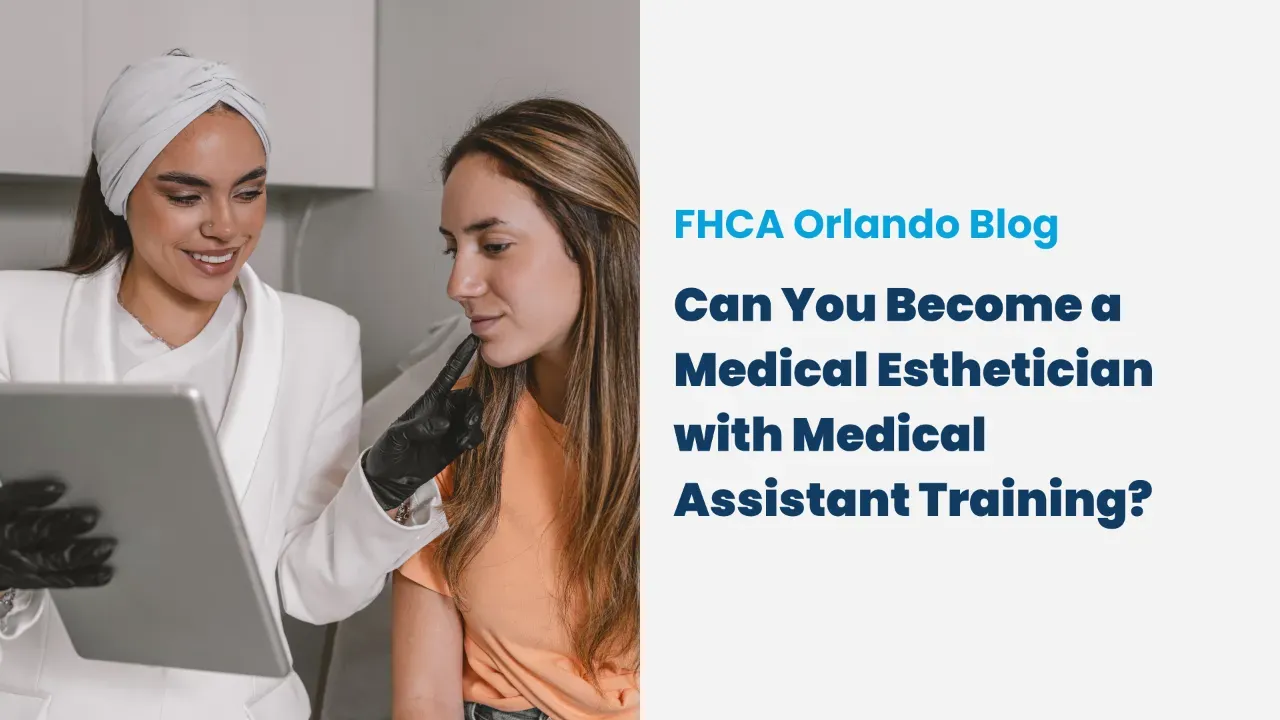The pathway to a career as an aesthetic medical assistant begins with completing an accredited medical assistant program. This foundational step is essential for acquiring the requisite medical knowledge and skills. Subsequently, future professionals must pursue specialized training to specialize in the field of aesthetics.
This advanced training often involves additional courses and certification in aesthetic procedures, ensuring practitioners are well-equipped to perform treatments administer cosmetic treatments with precision and safety.
Table of Contents
Is it possible for a medical assistant to become a medical esthetician?
In Florida, a certified medical assistant can further specialize by becoming a facial specialist. This process typically involves enrolling in an advanced aesthetics course, which can be completed in less than a year. After completing this course, they can apply for national certification and a diploma certificate in skin care.
Successfully obtaining these credentials qualifies them to become licensed facial specialists, thereby expanding their professional capabilities in the field of aesthetic medicine. For those interested in exploring other career paths that leverage their skills in medical procedures, consider reviewing our section on alternative jobs for medical assistants.
How to transition from medical assistant to medical esthetician
This career path allows medical assistants to specialize in the medical and aesthetic practices and skincare field, enhancing their capabilities and potentially broadening their job opportunities.
Below, we outline the essential steps to guide you through this professional transformation, starting with the foundational medical assistant training certification program.
1. Complete a medical assistant program
Start your career by enrolling in and completing a medical assistant program. This foundational education will provide you with the essential clinical and administrative skills necessary for a successful transition into specialized roles in depth training, such as that of a medical esthetician.

2. Learn about medical aesthetics
This involves studying various cosmetic procedures, skin care treatments, and aesthetic technology. Learning about medical aesthetics will equip you with the knowledge to perform specialized procedures such as chemical peels, microdermabrasion, laser treatments, and more. This phase is crucial for those aiming to excel in the aesthetic field of medicine.
3. Research licensing requirements
In Florida, becoming a licensed medical esthetician includes completing a state-approved esthetics program, such as the Florida Healthcare Academy, which requires at least 260 hours of training. After fulfilling these educational requirements, candidates must successfully pass both the written and practical examinations to obtain their esthetician licensure.
4. Identify transferable skills
Many of the skills developed in the role, such as patient care, detailed record keeping, and understanding of medical terminologies, are invaluable in the field of medical aesthetics. Proficiency in these areas enhances service delivery and client satisfaction in an aesthetic practice.
5. Choose a licensed esthetician program
Look for programs that are accredited and recognized by relevant industry authorities. These programs should offer comprehensive training that covers both theoretical knowledge and practical skills in aesthetic procedures. Ensure that the curriculum includes the latest techniques in skincare, as well as training on various technologies and equipment used in the industry.
6. Prepare for licensure
This preparation involves reviewing all the material covered in your esthetician program and possibly attending additional review courses or study sessions. Focus on both the theoretical knowledge and practical skills you'll need to pass the state board examinations. Many candidates find it helpful to participate in mock exams to familiarize themselves with the format and types of questions asked.
Skills needed to be a medical esthetician
A medical esthetician requires a specialized set of skills to excel in the field of aesthetic medicine. These skills range from technical knowledge and hands-on expertise in various treatments to interpersonal abilities that enhance client interactions and aesthetic practices.
- Skincare Knowledge: Extensive understanding of skin biology, conditions, and appropriate treatment protocols.
- Equipment Operation: Proficiency in using various aesthetic devices and technology, such as lasers and microdermabrasion tools.
- Treatment Expertise: Ability to perform a wide range of aesthetic procedures safely and effectively.
- Product Knowledge: In-depth knowledge of skincare products and the ability to recommend suitable products to clients based on their skin types and concerns.
- Customer Service: Excellent interpersonal skills to interact positively with clients, understand their needs, and ensure a pleasant experience.










